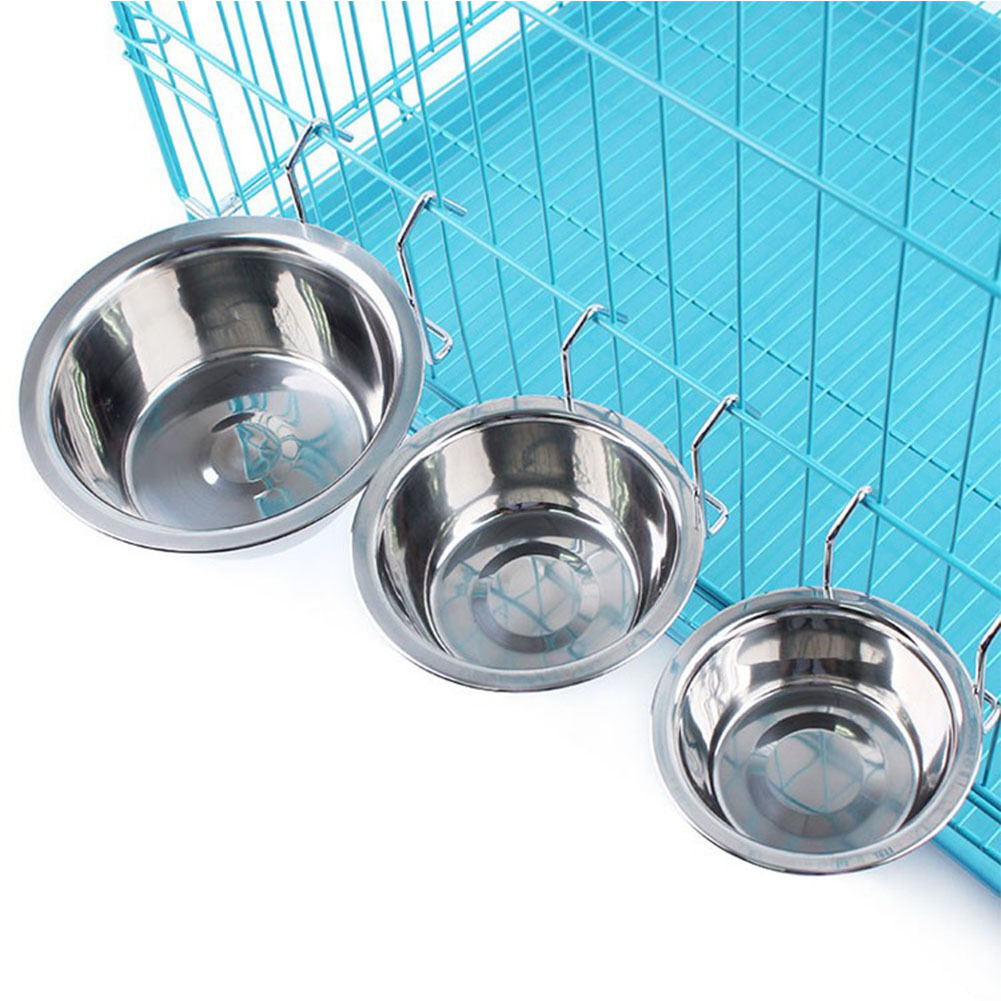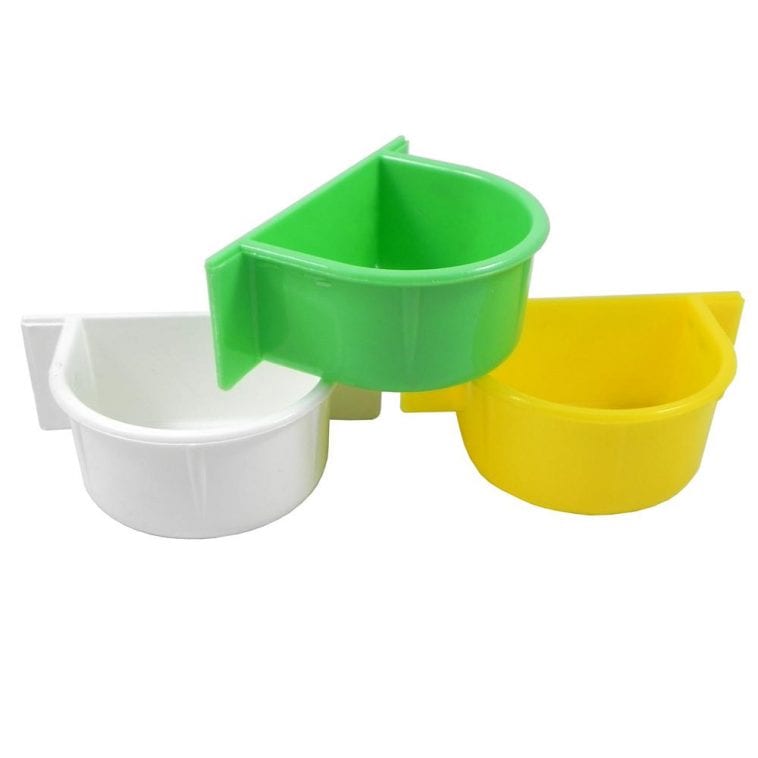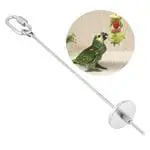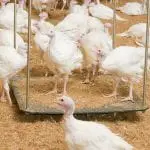Parrots are some of the best pet birds to have for any kind of pet owner because of how fun they are to be with and how colorful they are to look at. They are a treat to the eyes as well as good companions that can actually be affectionate compared to other birds. As affectionate as they are, you need to do your part by taking care of them well enough. This includes giving them a good home and feeding them the right kind of food.
However, feeding your parrots the best food available to them is not the only important factor to consider when feeding your parrots. You also have to look at the tools you use to feed them and the type of materials they are made of because parrots tend to have sensitive digestive systems. That means that you should not use just about any material when you are feeding them as it might damage your parrots’ digestive system and make them sick.
All those considered, it is high time you reconsider hour parrots’ feeding dish that is made out of plastic. You have seen the news about our plastic world and how many birds die due to bellies full of plastic. In that sense, plastic is obviously harmful to your birds. And while many people do not know it, using plastic dishes can actually also be harmful to them even if they do not directly ingest the plastic.
Why plastic is not safe for your parrots
They are not meantS to digest plastic
The most obvious reason as to why plastic is not safe for parrots is that plastic was not meant to be digested by birds. The parrot does not have the strongest digestive system, which was not naturally made to be able to digest plastic. And even if it does indeed digest it, plastic is too synthetic and contains harmful chemicals and materials that can potentially cause damage to your parrot’s overall health if the plastic gets to its bloodstream.
By now, you may be thinking about how your parrot does not directly ingest plastic whenever it is eating from its plastic dish. Well, think again. While you may not see it, food placed on plastic dishes may collect smaller plastic particles that come from the dish. As such, when your parrot eats its pellets, it might be ingesting small amounts of plastic together with its food. When the plastic builds up in its body, it might cause harm to your parrot. Plastic was not meant to be a natural part of the parrot’s daily life, and it will only cause harm to your bird if it gets into the bloodstream and all over its organs.
Plastic dishes are breeding grounds for bacteria
The plastic dishes that were made to be used for feeding your parrots tend to be quite porous. What this means is that they contain tiny pores that are too difficult to spot with the naked eye. Food particles get into those pores and will eventually cause bacterial growth when they are left uncleaned. As such, plastic dishes tend to be a breeding ground for bacteria.
What makes this even more troublesome is the fact that the tiny little pores on the plastic dishes are too difficult to spot-clean because regular soap and water might not be able to get into those pores to clean out the bacteria. As such, the bacteria in those pores will eventually get on your parrot’s food and cause different types of illnesses and infections that can potentially kill your bird. In such cases, plastic dishes can be stealthy killers because of the bacteria they harbor. They are also too hard to keep sanitary even for the most experienced parrot owners.
Why do birds even eat plastic?
If you look all over the news, you will see photos of dead birds with plastic in their belly. Obviously, plastic is a killer for birds as they are not meant to digest it. It will eventually build up in their bellies until they cause all kinds of illnesses that would lead to the bird’s death.
In that case, you might be wondering why in the world would parrot, and other birds even eat plastic if it is harmful to them? Well, the answer is simple—they actually do not eat plastic.
While you may have seen dead birds with bellies full of plastic, what you do not know is that they do not intentionally eat plastic because it is not part of their normal diet or even a part of their daily lives as birds do not naturally encounter plastic in the wild. Instead, they usually mistake plastic for food instead of actually eating it intentionally.
A lot of different types of birds use their senses of sight and smell to look for food. For those who use their eyes, they may mistake plastic for fish or other types of animals since plastic comes in different forms and colors. In some cases, the plastic may actually have been ingested by fish and will get into the bird’s system after they eat the fish. Birds that use their sense of smell might mistake plastic for food if the plastic was used as a container for food like fish. In that case, they will naturally think that plastic is fish or any kind of food and will eat it without even having second thoughts.
Alternatives for plastic
Now that you know that plastic is indeed harmful to your birds, whether they ingest it directly or eat out of it, it might be time for you to rethink the type of container or dish you use to feed your parrots. Plastic is a breeding ground for bacteria and is something that is too dangerous for your birds if they ingest it. As such, you are better off using alternatives instead.

If you want to use alternatives, try going for dishes that are durable, non-porous, and easily reusable. Ceramic and stainless-steel dishes are good examples. Not only are they much more durable and non-porous, but they can also be just as light as plastic. They are easy to clean and are longer lasting than plastic dishes are. That means that there is little to no danger that they will end up breeding bacteria or peel off smaller particles that can get on your parrot’s food and eventually into the bird’s body. On top of that, ceramic and stainless-steel dishes are much better for the environment compared to plastic.
But if you insist…
If you still insist on using plastic for whatever reason you may have, be sure to bear the consequences of using those types of dishes when feeding your parrots. However, you can minimize the ill effects that plastic can have on your birds if you actually do your part in making sure that they are always clean and sanitary. Simple spot-cleaning will not do the trick. Instead, soak the plastic dishes in hot and soapy water for a few minutes to kill off hard-to-reach bacteria. To make sure that you get into the pores, use a toothbrush when spot-cleaning the dishes. Avoid using sponges or cloths because they are quite unsanitary and are also breeding grounds for harmful bacteria.


